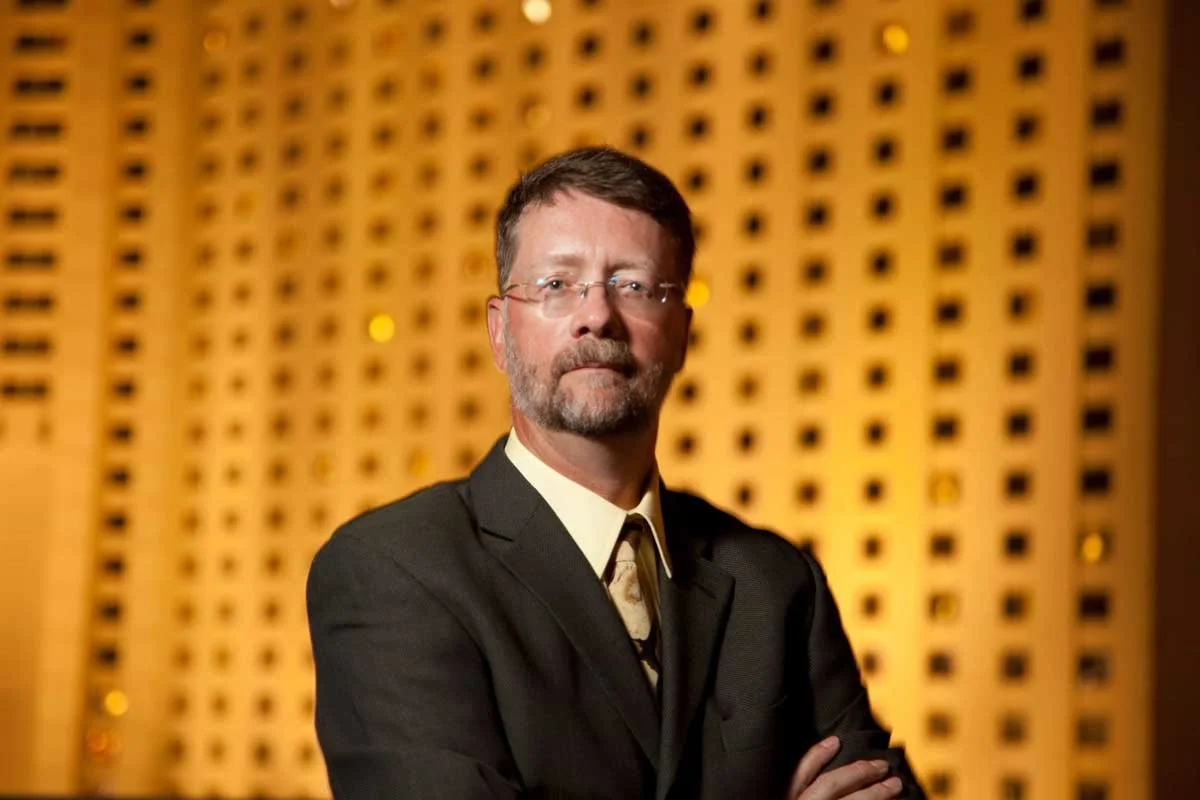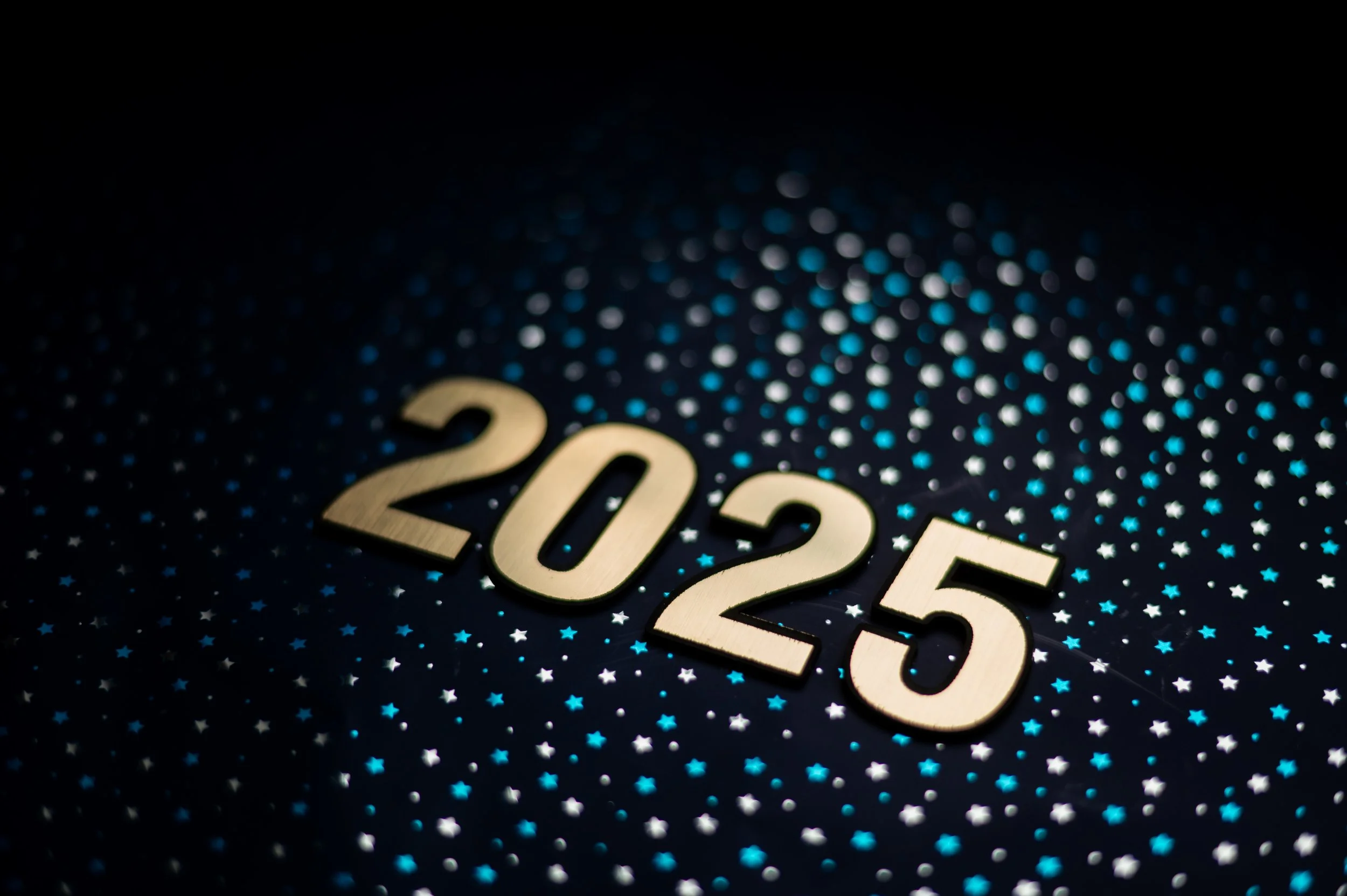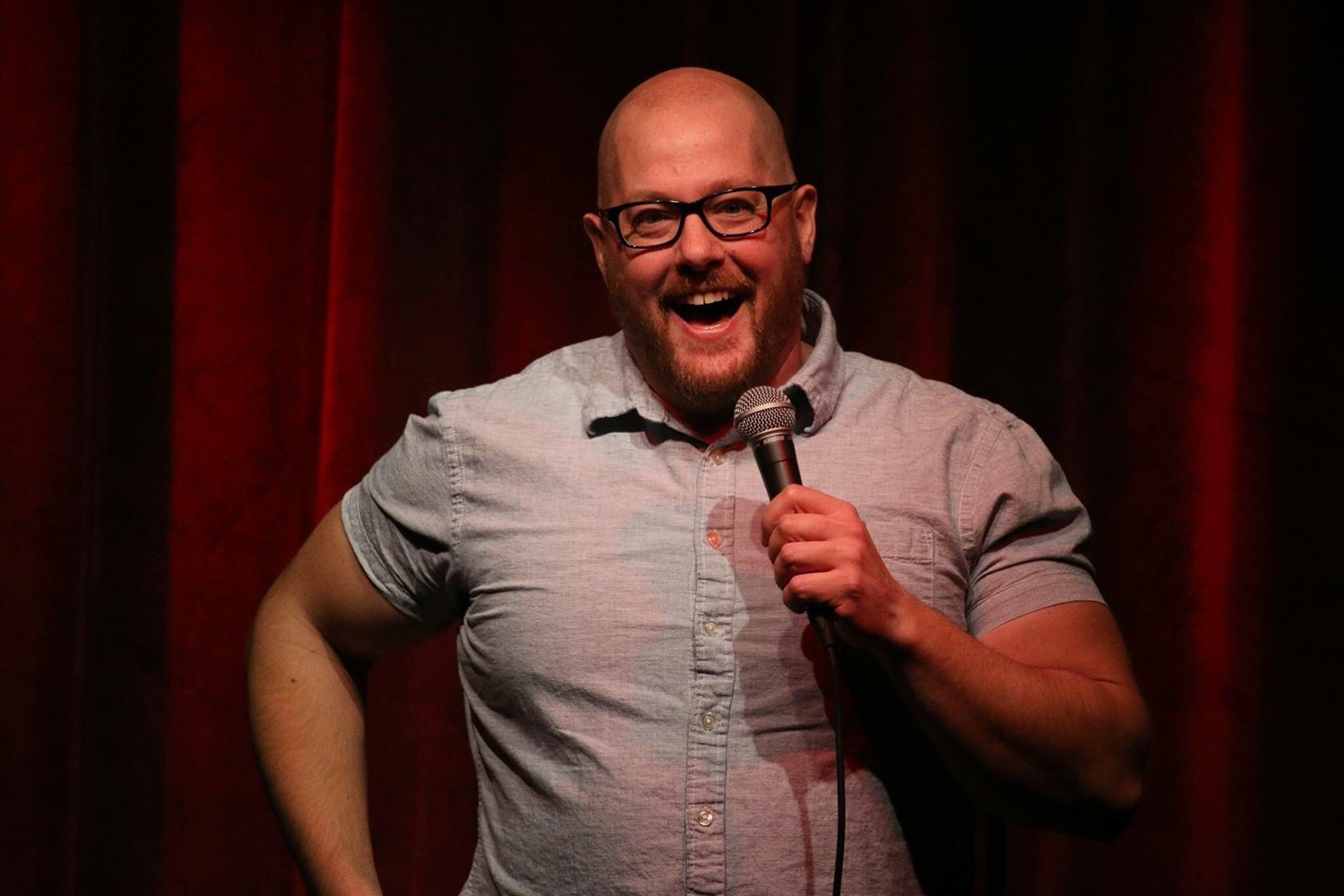First, a bit about Jonathan Stark
Jonathan Stark is a former software developer who is on a mission to rid the world of hourly billing. He is the author of Hourly Billing Is Nuts, the host of Ditching Hourly, and writes a daily newsletter on pricing for independent professionals.
Ed’s Questions: Segment One
Welcome to The Soul of Enterprise: Business in the Knowledge Economy, sponsored by Sage, transforming the way people think and work so their organizations can thrive. I'm Ed Kless with my friend and co-host, Ron Baker, and folks on today's show, we are pleased to have with us our interview with Jonathan Stark. Hey, Ron.
Ron
Hey, Ed. How's it going?
Ed
Good. Good week here in Texas beautiful, we still have cool weather, which you know I love.
Ron
That's awesome, it’s beautiful here, too. Hey, listen, I'm really excited about this because this is way overdue. I think I've been on Jonathan's podcast two or three times maybe? And so I’m just thrilled to finally get him on our show and turn the tables on him.
Ed
Absolutely. I've only been on once, but my claim to fame is—it was episode five—and I believe, if I'm correct, I was the first ever guest. So let's get the particulars over with. Jonathan Stark is a former software developer who is on a mission to rid the world of hourly billing. He is the author of Hourly Billing Is Nuts. The host of Ditching Hourly and the Business of Authority podcasts. He writes a daily newsletter on pricing for independent professionals. Welcome, long overdue, to The Soul of Enterprise, Jonathan Stark.
Jonathan, I gotta tell you that your sample questions that are on your website basically suck for us, because I'm not gonna say what is so bad about hourly billing. I'm not gonna ask you that question, we're not gonna go there. We're gonna go right into the love fest portion of our program. Since we're all on the same side of this. I will give you a chance to talk a little bit about your background, but the first thing I want to ask you is, tell me about Fred, the story on your website?
So did you have resistance with some of those early customers who were like, “No, no, just give me your hourly rate?”
The statistics on that are unbelievable. I remember reading some of the Standish Group stuff on it. Alright, so at this point you would say that you're offering a fixed price. What led you then to value pricing?
We talked on your podcast about the Backward Bicycle and the absolute rethinking that you have to go through in your mind to shift. What I wanted to get to, though, is this. So you you've made this transition, you've now studied you're Alan Weiss, you're doing value-based pricing for your software consulting. Then what led you to the transition to say, you know what I want to do though, is I want to coach other people and help VeraSage, who I didn't know about at the time, bury the billable hour. Where was that transition?
All right, outstanding. Well, that brings us right to our break.
Ron’s Questions: Segment Two
Welcome back, everybody. We're here with the host of the Ditching Hourly podcast, Jonathan Stark. And Jonathan, I'm curious, you've been at this for a while, as you were talking about with Ed. And you're probably very familiar with the Crossing the Chasm diffusion curve, the early adapters and all that. Where do you think your sector is, the software developers and all the different sectors within that space that you work with? Where do you think they are on that curve in terms of getting rid of the billable hour?
That's awesome. We try and keep track of that for the different professional sectors. I think in accounting, we're actually approaching the early majority.
Law a little bit slower, advertising agencies are really adopting it at a good rate. So it's just interesting, like you were talking with Ed, the unlearning that has to take place is massive.
The other question I want to ask you about, because I think this is the real cancer, and that is the timesheet. I mean, we are what we measure, right? And if you're measuring yourself, like you were saying in the first segment, in six minute increments, and that's what you think you sell, how do you help or coach your folks to get rid of that timesheet, that measurement? And because there's all those defenses? Well, we needed to figure out if we're efficient, we need it for project management, we need it to do this or that.
Accountants have the same problem with the “I've got to know the time” because they want to check it after the fact. They've got this fetish about “We projected so many hours, now we want to compare it to actual.” It's crazy. I'm going to go off of the billable hour now, Jonathan, and ask you about this. You had Blair Enns on your show on February 9, 2021 [What Is Strategy?]. It was a terrific discussion about strategy, all the cliches about the definitions of strategy. It's one of those terms that when you ask people, and they have to really think about it, they don't really know what they mean by strategy. You know the typical answers, “It's knowing what not to do.” “It means having a plan, having a smart plan,” and all these things. And Blair's favorite definition—and he's got a weird hobby, too, by the way, he collects definitions of strategy. We've had Blair on the show [Episode #188], I love Blair. He's great. He's really brilliant. But his favorite definition of strategy is, “The idea that describes a journey to a position of advantage.” And I thought that was pretty interesting. But you have a very interesting, favorite definition. What's yours?
I love that definition. I especially like the surprise, and Blair even alluded to this in the conversation with you. It comes from George Gilder’s book, Knowledge and Power [Episode #60], it's his information theory of capitalism, which is information equals surprise. Creativity, and innovation always takes us by surprise. And that's why that definition is so great. And we've had on Rory Sutherland [Episode #267], and in his book, Alchemy, he talks about if your strategy doesn't have an element of surprise it's kind of worthless. He compares it to the military, you've got to have an element of surprise, otherwise, the enemy knows what you're up to?
It's really hard, because of all these definitions, like you say, many of them are not helpful. And then when you start parsing even the ones you like, you run into these walls. I'll give you mine favorite definition of strategy, and it comes from Jules Goddard [Episode #27 and Episode #315]. He wrote a book called Uncommon Sense, Common Nonsense. He’s a management Professor out of the UK, and I love this because it speaks to me; let me get your take on it: “Strategy is the rare and precious skill of staying one step ahead of the need to be efficient.”
What I love about it is it bakes in innovation. But like you said, if that's not the goal, if your goal is to maybe be the low-cost leader. But you know, I think this strive to be efficient is an innovation destroyer, innovation and creativity is the antithesis of efficiency.
Yes, that book [Good Strategy, Bad Strategy, by Richard Rumelt] is a bit dense, but it was a thought- provoking book.
We've only got about a minute, but I have to ask you about this, too. Pricers have a pretty interesting saying, “Innovate for growth, price for profit.” How do you think and advise your customers around innovation? And I'm not just talking about the new iPhone, I'm talking about innovation broadly. How do you think about it?
That's been my experience, too. We always talk about how you can innovate your language, you can innovate your sales approach, the questions you ask, your why conversation, can all be part of massive innovation. So, Jonathan, this is great, it’s flying by.
Ed’s Questions: Segment Three
And we are inspiring people today by talking to Jonathan Stark, who is the host of the Ditching Hourly and the Business of Authority podcasts. Jonathan, I want to throw you a change-up here. Ron said he threw you a curveball during the break. I want to throw a change-up. I'm a big baseball guy. What are your thoughts on subscription pricing?
The reason why I wanted to ask you about that is because of the nature of the customers that you have, which is software development. And oftentimes this is what I hear—I’m in an adjacent space, software implementation. But then we do have partners at Sage who also do custom development work as well. But the thing that I hear from them is, “This is a one-off thing, it’s just a one-off thing. They aren’t going to subscribe to me to do just this one-off project.” What's your reaction to that?
That's why I wanted to talk to you about what you are advising the people that you work with now to try to adopt a subscription model, where possible, and if so, what has been the reaction from the people you're working with?
Thanks for that. Just to give you a quick introduction, Ron and I are just relaunching our Patreon site with additional subscription offerings. So that was a great tie in, and I wanted to ask you this. I was poking around your website preparing. Are you going to move some of the stuff that you have right now as one-offs, which includes your book, you have three levels of buying your book, and there's some content. Are you going to move yourself to a subscription model on the content you offer now?
If you haven't read Tien Tzuo’s book, Subscribed, we highly recommend it. He's been a guest on our show as well [Episode #230]. What you're describing is what he calls “swallowing the fish,” because it's this graph that happens when your expenses go up, and your revenue potentially goes down at the same time. And then they cross somewhere in the future, but you want that future to be as quickly as possible.
You’re figuring out how to swallow the fish. Well, that's great stuff. We're up against our last break.
Ron’s Questions: Segment Four
Welcome back, everybody. We're here with Jonathan Stark of the Ditching Hourly podcast, which I highly recommend. You put out great content on that show, Jonathan, every week, it's really good. Even your short, little three minute ones are incredibly thought provoking, so I congratulate you, it's just a great job. The late Andy Grove, founder of Intel, said, “Disruptive threats come inherently not from new technology, but from new business models.” How do you deal with business model innovation in your coaching? I know we think, for example, I work with a lot of accountants, [and we think they] only have one business model. But that's not necessarily true, we have a range that we can pick from. How do you deal with business models?
You've probably heard about the firm Pilot, which is an accounting firm that Jeff Bezos’ family office recently invested $300 million in, along with some other venture capitalists. That puts the valuation of that accounting firm, with about 1000 customers, at $1.2 billion, with a B dollars. That makes them the eighth largest accounting firm in the country, as most accounting firms are valued at one times revenue. I know you had John Warrillow on your show talking about his book Built to Sell, and we had him on to talk about his book, The Automatic Customer, which is his subscription book [Episode #327], which we also recommend highly. What [Pilot] tells me, Jonathan, even if you don't want to sell your business, the market is screaming at businesses, “Hey, we value businesses that have annual recurring revenue at much higher multiples than even value pricing.”
Oh, you can swallow the fish. We're finding the fish to be more like a minnow in a lot of firms, rather than a big Marlin. We've only got about four minutes left. You have a concierge doctor, it’s one of the reasons I came on your show, because I think that is the model for accountants and lawyers going forward. Tell me about that experience. And I want the psychological reasons that you see incredible value, because those are the hardest to get on a spreadsheet.
Well, that's awesome. Jonathan, unfortunately, we're at the end. And we really want to thank you for coming on. It's been an honor to have you on here. Keep up the great work over at Ditching Hourly. Ed, what's on store for next week?
Ed
Ron, we have John Tamny, author of They're Both Wrong.
Ron
Yes, and author of When Politicians Panicked. Looking forward to that, I'll see you in 167 hours.
Ed’s and Ron’s Appearances on the Ditching Hourly podcast:
Burying the Billable Hour with Ed Kless, October 17, 2016
The 8 Steps to Value Pricing with Ron Baker, December 8, 2016
The Ethics of Hourly Billing with Ron Baker, May 22, 2017
Ron Baker on The Subscription Economy, December 17, 2019
Bonus Content is Available As Well
Did you know that each week after our live show, Ron and Ed take to the microphone for a bonus show? Typically, this bonus show is an extension of the live show topic (sometimes even with the same guest) and a few other pieces of news, current events, or things that have caught our attention.
This week is bonus episode 337 - New Tiers and the USPS
Here are some links discussed in the bonus episode:
Click the “FANATIC” image to learn more about pricing and member benefits.










